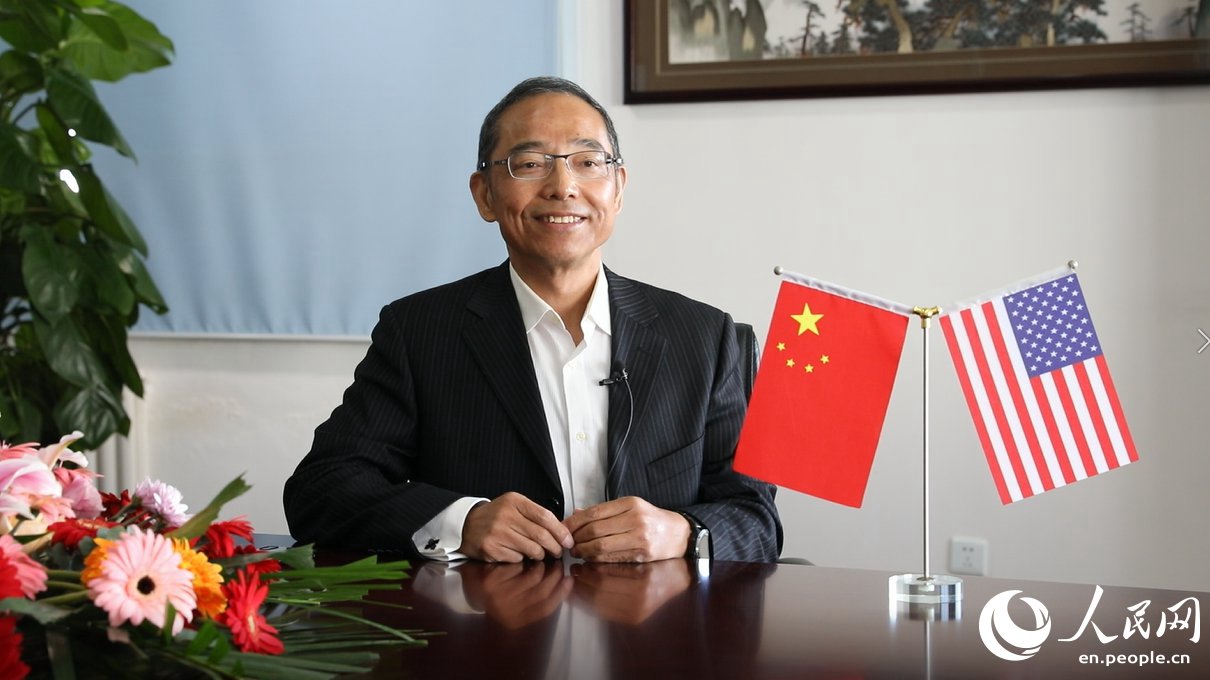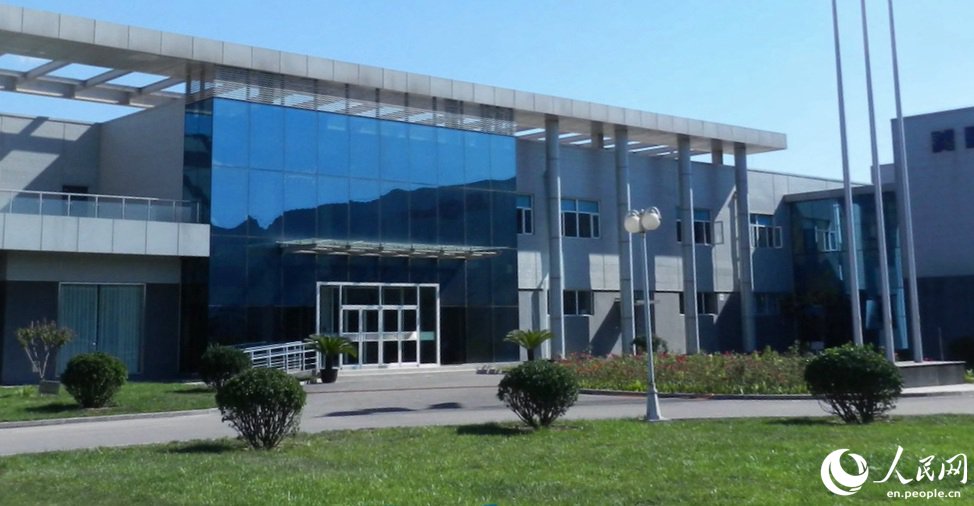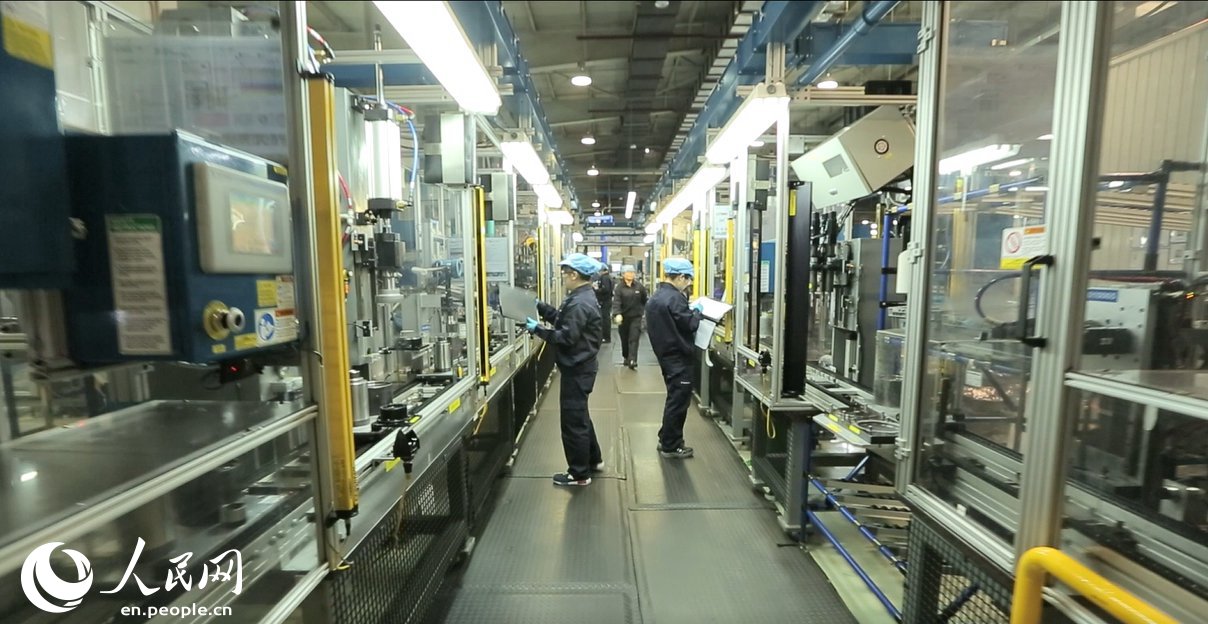

Recently, Tom Tan, vice president of BorgWarner Inc. and president of BorgWarner China, sat down for an exclusive interview with People’s Daily Online. He voiced confidence in the prospects for China’s auto market, noting that China’s sound business environment and high-level opening up boost the development of foreign companies.
BorgWarner Inc., headquartered in Auburn Hills, Michigan, USA, is an American worldwide automotive industry components and parts supplier. As a US Fortune 500 company, BorgWarner has established manufacturing and technological bases in 67 regions in 19 countries, with a total revenue of more than $10.5 billion in 2018.
Having done business in China since 2003, Tan has witnessed BorgWarner’s proactive move to tap into the Chinese market while going global. In 2003, the company had only two operations in Beijing and Ningbo, with a total revenue of $3.6 million. By 2018, BorgWarner had set up factories and technological centers in 7 cities with an annual revenue reaching $1.8 billion, nearly 500 times the amount in 2003, while the number of employees has only grown eightfold.

Tom Tan, vice president of BorgWarner Inc. and president of BorgWarner China, sat down for an exclusive interview with People’s Daily Online. (Photo/He Zhuoyan)
BorgWarner’s rapid growth could not have been achieved without China's favorable investment policies and sound business environment, Tan said. He recalled that the company opened a new plant in Tianjin four years ago and went into operation in just one year. “This kind of pace is hard to find overseas, which confirms the huge advantages of China's improved investment and business environment,” Tan said.
In recent years, China has made commendable progress on a number of business indicators as an array of initiatives have taken root, improving the business environment across the country. According to the World Bank Doing Business report, China moved up to 31st spot in 2019, up by 15 places from 2018’s ranking of 46th.
Nowadays, more foreign companies eye the Chinese market with optimism. According to China’s Ministry of Commerce, a total of 36,747 new foreign-funded enterprises were established from January to November in 2019, while foreign direct investment (FDI) in the Chinese mainland increased by 6 percent year-on-year to 845.9 billion yuan ($122.8 billion).
“China is a promising place for foreign business,” Tan noted with confidence.
Bucking the downward trend

BorgWarner TorqTransfer System (Beijing) Co., Ltd.
Since the second half of 2018, China's auto market has experienced the worst drop in sales in a decade, and the slump lingered in 2019, taking a heavy toll on China’s automobile and parts companies. China's auto sales went down 8.2 percent year on year to 25.77 million units in 2019, capping a second consecutive year of decline after the first decline in 28 years in 2018, according to the China Association of Automobile Manufacturers.
Despite the harsh winter in the global auto industry, China continues to open up its own auto industry. According to the opinions on further improving the utilization of foreign investment released by the State Council in November 2019, policies on foreign investment in the auto industry will be fine-tuned to ensure equal market access for domestic and foreign auto enterprises in manufacturing new energy vehicles (NEV).
Coming into effect on Jan.1, 2020, China’s new Foreign Investment Law is a strong move that has lifted China’s opening up to a higher level. The launch of the new law has greatly encouraged Tan, who opined that it ensures a more transparent and level playing field for foreign businesses from a legislative perspective. Creating a fair competition environment between foreign and domestic enterprises, he added, would directly encourage and support foreign enterprises in China.
"For foreign investors, our biggest concern is the complexity of entering and leaving the Chinese market freely. The new law has ensured our free access to the Chinese market, allowing us to freely remit our profits, which has strengthened our confidence in doing business in China," said Tan.
With regard to the prospects for China's auto market, Tan is still full of confidence. According to him, there’s plenty of scope for growth in China's auto industry, while further opening up will inject strong vitality and sustainability into the industry so as to promote the overall development of the industrial economy.
Tan pointed out that there are still only 173 vehicles per 1,000 people in China, lagging far behind Europe and the US. “If you double the volume, the whole volume of sales will be very substantial,” he said, predicting that the number would climb to 300 within 15 to 20 years.
Riding a secure growth wave

Photo shows workers work at a factory of BorrgWarner.
Since June 2019, China has seen a drop in NEV subsidies, partly resulting in a continuous decline in NEV sales. China’s 2019 NEV production and sales dropped by 2.3 percent and 4 percent respectively, posting its first annual decline in a decade. In addition, Tesla's rapid localization has made the situation even worse for Chinese car brands.
Despite the impact on China's NEV market, Tan takes a sanguine view of the long-term prospects. In his view, these challenges have brought new opportunities for Chinese car brands, which will be conducive to the innovation and rise of the industry. “China's reform and opening-up policy attracted plenty of foreign investment, and had an extremely adverse impact on the national industry in the beginning. Nevertheless, the impact also expedited independent innovation of Chinese enterprises," Tan said.
Tan stressed that the NEV industry is expected to achieve a compound annual growth rate of more than 20 percent in the coming five years, much higher than that of the whole auto industry. This means that NEV will remain a crucial growth point for BorgWarner's future business in China. “Whatever market conditions we face, we always have a chance to succeed. The key is to capture the fast-growing segments of the market. The integration of precise strategies and innovative products can bring a lot of opportunities,” he noted.
Talking about the trend of the auto industry, Tan mentioned that the global auto industry has entered a rapidly changing era. The future industry has three trends, namely driverless vehicles, connected vehicles and electrification, and the idea of the automobile will be redefined. “In the future, the car will not only be a means of transportation, but a value chain multiplier, involving multiple industries like urban planning and construction, service, software and entertainment, thus creating a huge economic society,” said Tan.